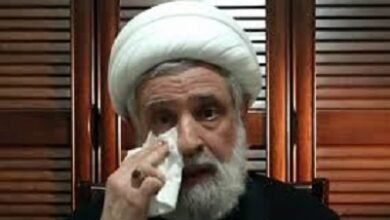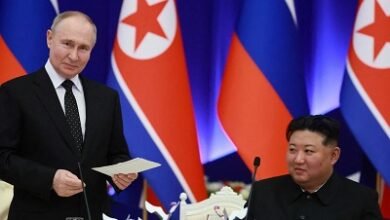Israel killed Hamas Political Bureau Chairman Ismail Haniyeh in Tehran.
S K Singh:Editor-In-Chief

WAR-REPORT: Israel killed Hamas Political Bureau Chairman Ismail Haniyeh in Tehran on July 30. Israeli agents appeared to have launched an explosively laden drone or missile from inside Iran to target Haniyeh, who was visiting for the inauguration of Iranian President Masoud Pezeshkian. Haniyeh was staying at a facility with the IRGC Quds Force in northern Tehran. The killing of Haniyeh reflects the degree to which Israel has infiltrated the Iranian security sector and is able to strike high-value targets within Iran. Hamas responded to the killing by calling on Middle Eastern countries to “deter” and “rein in” Israel. Hamas also threatened to expand the war against Israel to ”new dimensions.”

Iran is signaling that it will retaliate directly for Israel killing Haniyeh. The Iranian Supreme National Security Council (SNSC), which is the seniormost Iranian defense and foreign policy body, held an emergency meeting on July 31 to discuss the killing of Haniyeh. Supreme Leader Ali Khamenei attended the SNSC meeting, which is rare but normal during serious crises, including immediately following the United States killing Qassem Soleimani in January 2020.
Three anonymous Iranian officials told the New York Times that Khamenei ordered a direct strike on Israel during the SNSC meeting. Khamenei later published a statement that blamed Israel directly and vowed retaliation. The Islamic Revolutionary Guards Corps (IRGC) similarly published a statement saying that the Axis of Resistance and ”especially Iran” will retaliate against Israel. Iran separately raised the red flag of Imam Hossein over the Jamkaran Mosque in Qom, which signals an Iranian intent to seek revenge. Iran similarly raised the red flag after the United States killed Soleimani.

One of the most dangerous courses of action would be Iran and other members of the Axis of Resistance conducting a large-scale, combined drone and missile attack into Israel. Iran could launch an attack similar to the one it conducted against Israel in April 2024, which involved around 300 drones and ballistic and cruise missiles. Iran could target multiple locations in Israel or mass its fire on a single target. Using a large strike package against even a single target could still appear as a widespread attack.
This scenario would also involve simultaneous attacks from other members of the Axis of Resistance, such as Hezbollah, the Houthis, and Iranian-backed militias in Iraq and Syria. Such a combined Iranian-Axis of Resistance attack would be especially dangerous because attacking from multiple direction would put greater pressure on Israeli air defenses than the Iranian attack in April 2024 did. The United States and Israel were furthermore able to defend against the Iranian attack in April 2024 so effectively in part because it took the attack drones several hours to get from Iran to Israel.

That hours-long period gave the United States, Israel, and their regional partners time to prepare their defenses and intercept all of the drones. The United States and Israel would have far less warning and opportunity to intercept if the Axis of Resistance launched large swarms of drones from Iraq, Lebanon, or Syria toward Israel. Hezbollah may be especially incentivized to participate in such an attack given its desire to retaliate for Israel killing Fuad Shukr in Beirut, though Hezbollah has not yet indicated that it would retaliate for the killing of Shukr at the time of this writing. CTP-ISW has noted previously that Hezbollah and the Houthis have probed Israeli air defenses to better understand the strengths and weaknesses.
Key Takeaways:
- Iran: Israel killed Hamas Political Bureau Chairman Ismail Haniyeh in Tehran. Iran is signaling that it will retaliate directly. One of the most dangerous courses of action would be Iran and the Axis of Resistance launching a large-scale, combined drone and missile attack into Israel.
- Lebanon: Lebanese Hezbollah confirmed that Israel killed one of its seniormost commanders, Fuad Shukr, in Beirut. Hezbollah Secretary General Hassan Nasrallah will address the killing of Shukr during his funeral on August 1.
- Iraq: The United States conducted a self-defense strike targeting Iranian backed militants in Iraq, who were preparing to launch a one-way attack drone. Iranian-backed militias have resumed their campaign to expel US forces from Iraq and Syria in recent days.








